Agreement Under the Indian Contract Act 1872
Definition: An agreement, as defined in Section 2(e) of the Indian Contract Act 1872, is a promise between two parties, involving consideration. A common example is a rent agreement, where the owner and tenant agree on terms, with rent as the consideration.
Important Aspects of an Agreement:
- Parties: Minimum of two parties involved, can be more depending on the circumstances.
- Offer: One party makes an offer to another, which is included in the agreement.
- Acceptance: The other party must accept the offer willingly for the agreement to be valid.
- Promises: Both parties must promise to fulfill their duties and obligations mentioned in the agreement.
- Consideration: Consideration refers to money or something of value exchanged between the parties for the promise.
Conditions for a Valid Agreement:
Not all agreements are valid. Some are void or considered null due to certain conditions:
- No Consideration: If there is no consideration (no price/money involved), the agreement is not valid.
- Agreement in Restraint of Trade: If one party prevents the other from engaging in trade or business, the contract is void.
- Agreement to Restrain Marriage: If one party prevents the other from marrying anyone in exchange for a gift, the agreement is invalid.
- Agreement to Restrain Legal Proceedings: If one party stops the other from engaging in legal proceedings, the contract is null and void.
- Impossible Act: If the agreement involves an act that is impossible to perform, it is considered null and void.
Summary of Invalid Conditions:
| Condition | Explanation |
|---|---|
| No Consideration | No money or value exchanged, making the agreement invalid. |
| Agreement in Restraint of Trade | Prevents one party from engaging in trade or business, rendering the contract void. |
| Agreement to Restrain Marriage Section 26 | Prevents marriage in exchange for something, making it invalid. |
| Agreement to Restrain Legal Proceedings | Prevents legal action, making the contract null and void. |
| Impossible Act | Involves an act that cannot be performed, rendering the agreement null and void. |
Understanding these aspects and conditions helps ensure agreements are legally valid and enforceable.
Section 3 of the Indian Contract Act 1872: Communication of the Proposal
Importance of Communication: Communication is crucial in maintaining both legal and personal relationships. In the context of proposals, it ensures that all terms and conditions are clear to both parties, preventing misunderstandings and ensuring mutual agreement.
Types of Communication:
- Expressed Communication:
- This involves direct communication through written or spoken words. One party clearly states their terms and conditions to the other party.
- Examples:
- Written: Sending a written proposal outlining terms.
- Spoken: Verbally explaining the conditions of the proposal.
- Implied Communication:
- This involves understanding the terms and conditions without explicit words. One party comprehends the proposal based on actions or circumstances.
- Examples:
- Actions: Nodding in agreement or performing an act that implies acceptance.
- Circumstances: A regular pattern of behavior indicating acceptance.
Essential Requirements for a Valid Agreement:
- Clear Communication: The agreement must be communicated to both parties, either in an expressed or implied form. Lack of communication can lead to misunderstandings and different interpretations of the agreement.
- Promise: The proposal must contain a promise. Without a promise, there is no agreement, and such an agreement is considered void and null.
- Validity and Certainty: The proposal must be valid and certain, meaning the conditions mentioned must be possible to fulfill. Immaterial or impossible conditions should not be included.
- Intention: The proposal should clearly express the intention of the promiser and the promisee to avoid misunderstandings regarding the proposal.
- Positive Statements: The proposal should not contain negative statements, as they can create a bad impression and cause a negative impact on the relationship between the parties.
- Clear Terms and Conditions: All terms and conditions must be clearly mentioned and understandable, written in simple language to avoid confusion.
- Truthfulness: The proposal should not contain any false statements or fraudulent information.
Summary
Effective communication of a proposal ensures both parties have a clear understanding of the terms, whether communicated directly (expressed) or indirectly (implied). For a valid agreement, the proposal must include a promise, be valid and certain, express clear intention, avoid negative and false statements, and clearly outline all terms and conditions.
Section 4 of the Indian Contract Act
Section 4 of the Indian Contract Act states that communication is complete when it reaches the person it is intended for. Communication is considered accepted when the person receiving it accepts the contract or proposal. Once accepted, the communication is deemed complete.
Section 5 of the Indian Contract Act: Revocation of the Proposal and Acceptance
A proposal can be revoked before the communication of acceptance by the promisee.
Section 6 of the Indian Contract Act: Revocation How Made
- Communication of Notice: The proposal can be revoked by the proposer communicating a notice of revocation to the other party.
- Lapse of Time: If the other party does not accept the offer within the prescribed time, the proposer can revoke it. If no time is prescribed, the proposer can revoke after a reasonable time, considering the circumstances.
- Failure to Fulfill Conditions: The proposal can be revoked if the acceptor fails to fulfill the conditions specified in the contract.
- Death of the Proposer: If the proposer dies before the acceptance and this comes to the knowledge of the acceptor, the agreement can be revoked before acceptance.
Section 7 of the Indian Contract Act: Acceptance Must Be Absolute
For a proposal to be converted into a promise, the acceptance must:
- Be Absolute and Unqualified: Acceptance is crucial for forming a valid contract and must be unconditional.
- Be Expressed Reasonably: Acceptance should be expressed in a manner that clearly indicates acceptance. If the proposal specifies a manner of acceptance and it is not followed, the proposer can insist on the specified manner within a reasonable time. If the proposer fails to do so, the acceptance as communicated will be valid.
Section 8 of the Indian Contract Act: Acceptance by Performing Conditions or Receiving Consideration
- Acceptance by Performing Conditions: If the offer includes conditions and the acceptor performs these conditions, it constitutes acceptance of the offer.
- Acceptance by Receiving Consideration: If the acceptor accepts the consideration provided in the proposal, it is considered acceptance of the proposal, and the acceptor cannot return the goods.
Section 9 of the Indian Contract Act: Promises, Express and Implied
Section 9 of the Indian Contract Act discusses the concepts of express and implied promises.
- Express Promises: If the proposal and acceptance are communicated through words or writing, it is considered an express promise.
- Example: A written agreement to sell a bicycle for Rs. 5,000.
- Implied Promises: If the proposal and acceptance are not communicated through words but through actions or circumstances, it is considered an implied promise.
- Example: If X parks his car and Z starts cleaning it without any verbal or written agreement, it is considered an implied offer, as Z is acting on his own initiative.
Summary
Express promises involve clear communication through words or writing, while implied promises are understood through actions or behavior.
Case Study: Manglam Express Cargo Pvt. Ltd. v. Union of India & Ors.
Manmohan, the petitioner, filed a writ petition against an order passed by the Divisional Railway Manager on October 28, 2015. This order terminated the petitioner’s licensing contract, forfeited the earned profits, and banned the petitioner from participating in railway department activities for two years. The petitioner had received acceptance from the respondent. The petitioner’s counsel argued that the railway department's actions were unlawful. The court ordered the railway department (the respondent) to refund the money to the petitioner within six weeks from the date of the judgment. The case referred to Section 6(2) of the Indian Contract Act, 1872, which states that if the other party does not accept the offer within the prescribed time, the proposer can revoke the offer within a reasonable time. The contract was not enforceable under the law.
Case Study: Rajlucky Dabee v. Bhootnath Mookerjee
Facts of the Case:
- There were quarrels and disagreements between a husband and his wife.
- The husband promised to pay his wife some amount for maintenance to get rid of her.
- This agreement was registered, but the husband later denied paying the amount, and his wife sued him for recovery.
Contention of the Parties:
The wife argued that there was a written and registered contract between them, so there must be an intention to sue, and she should receive the money.
Decision of the Court:
The court found that, despite the near relation and the written and registered agreement, the contract was without consideration and thus not valid. If the agreement had been made out of natural love and affection, it would have been valid without the need for consideration. Therefore, the wife could not enforce the contract.
Share
Related Post
Tags
Archive
Popular & Recent Post










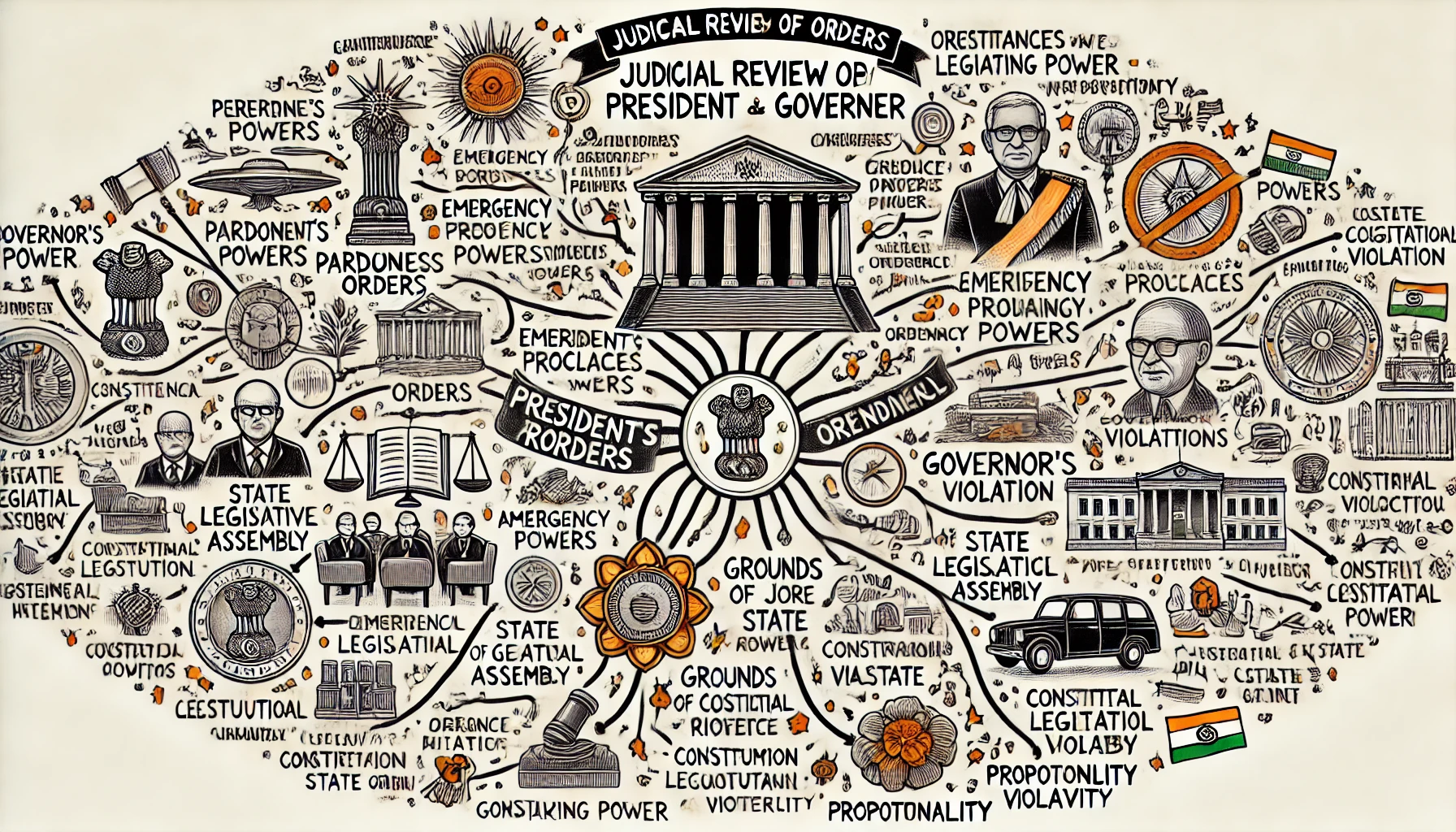
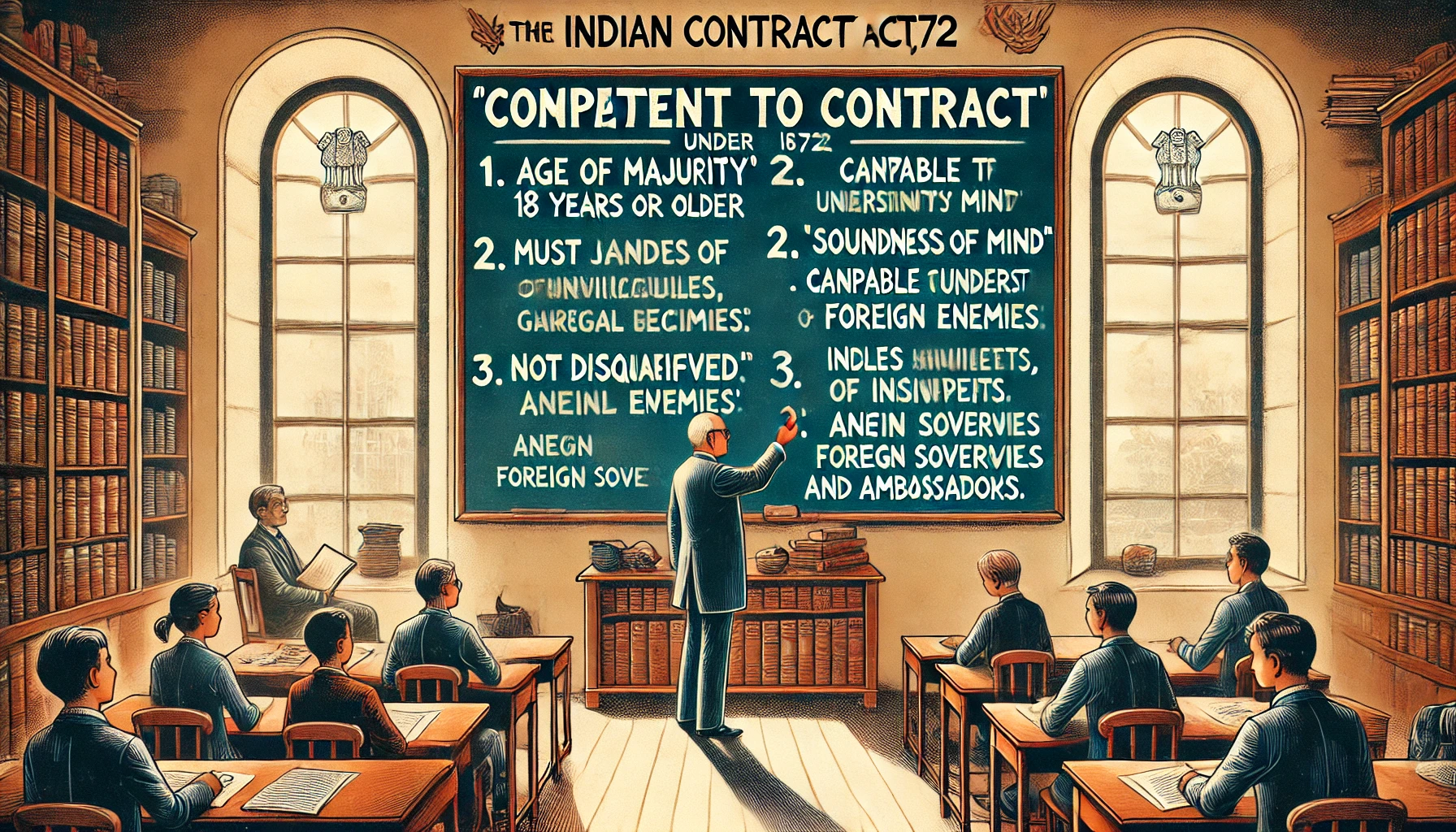

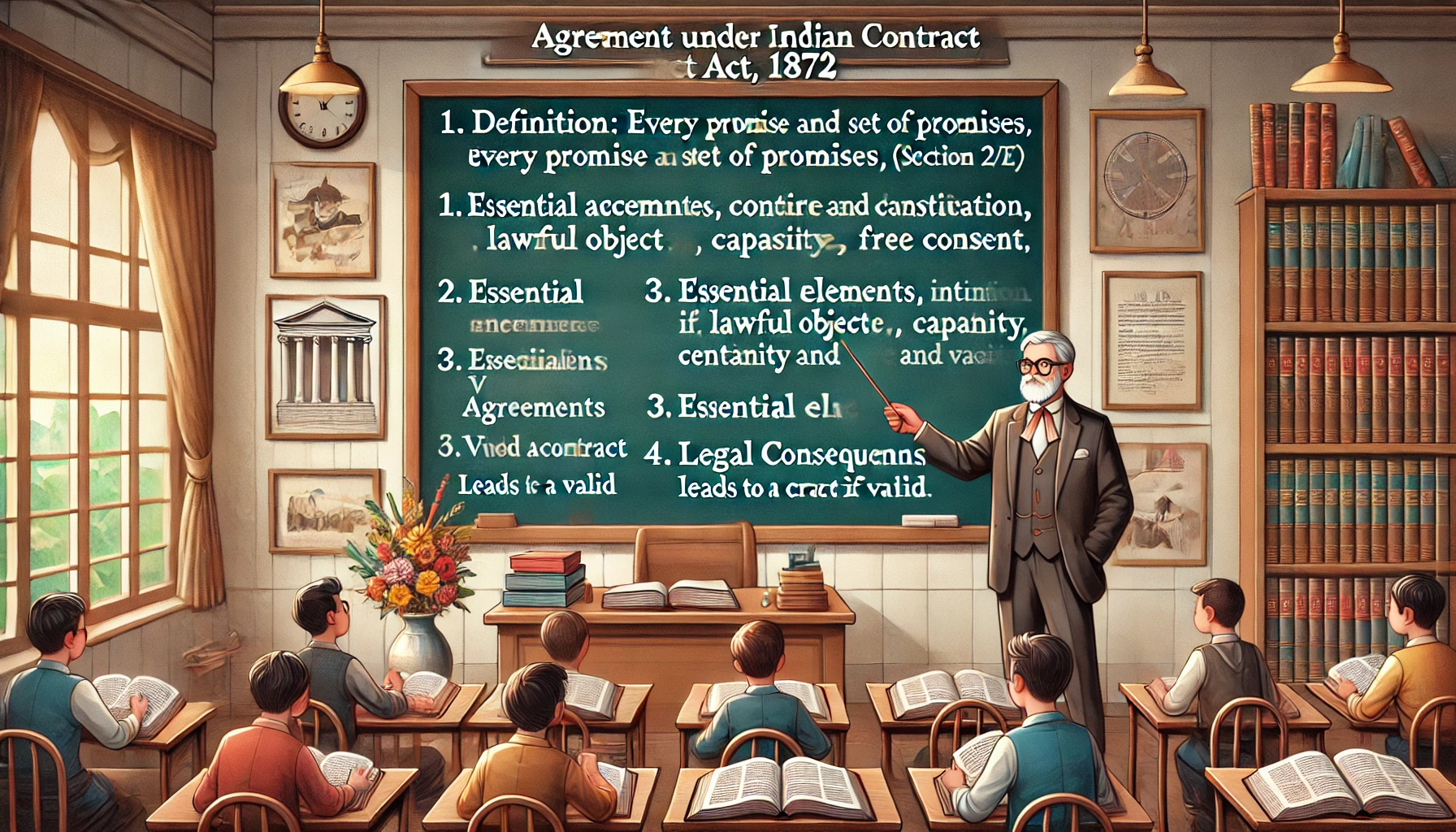
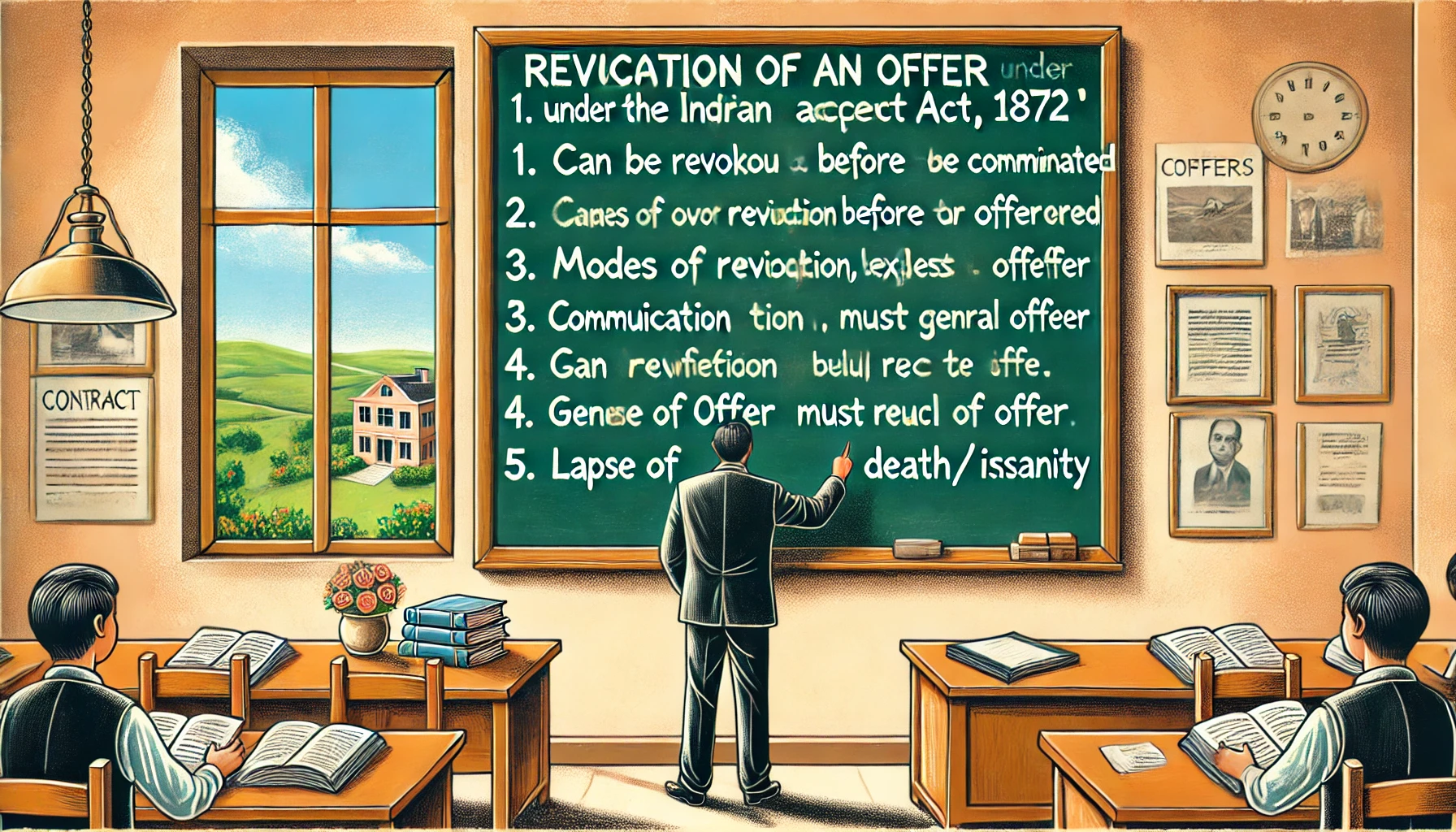

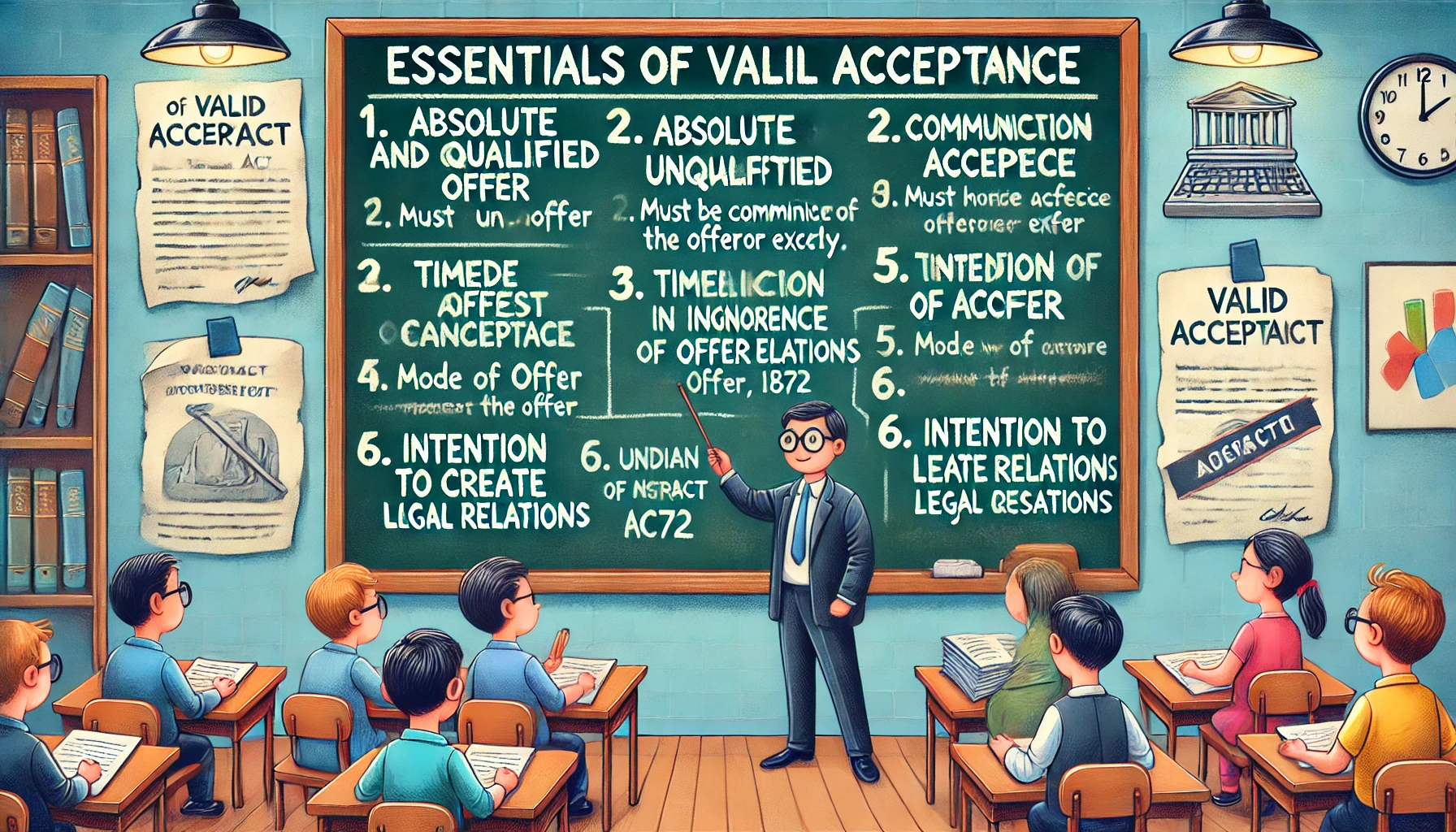



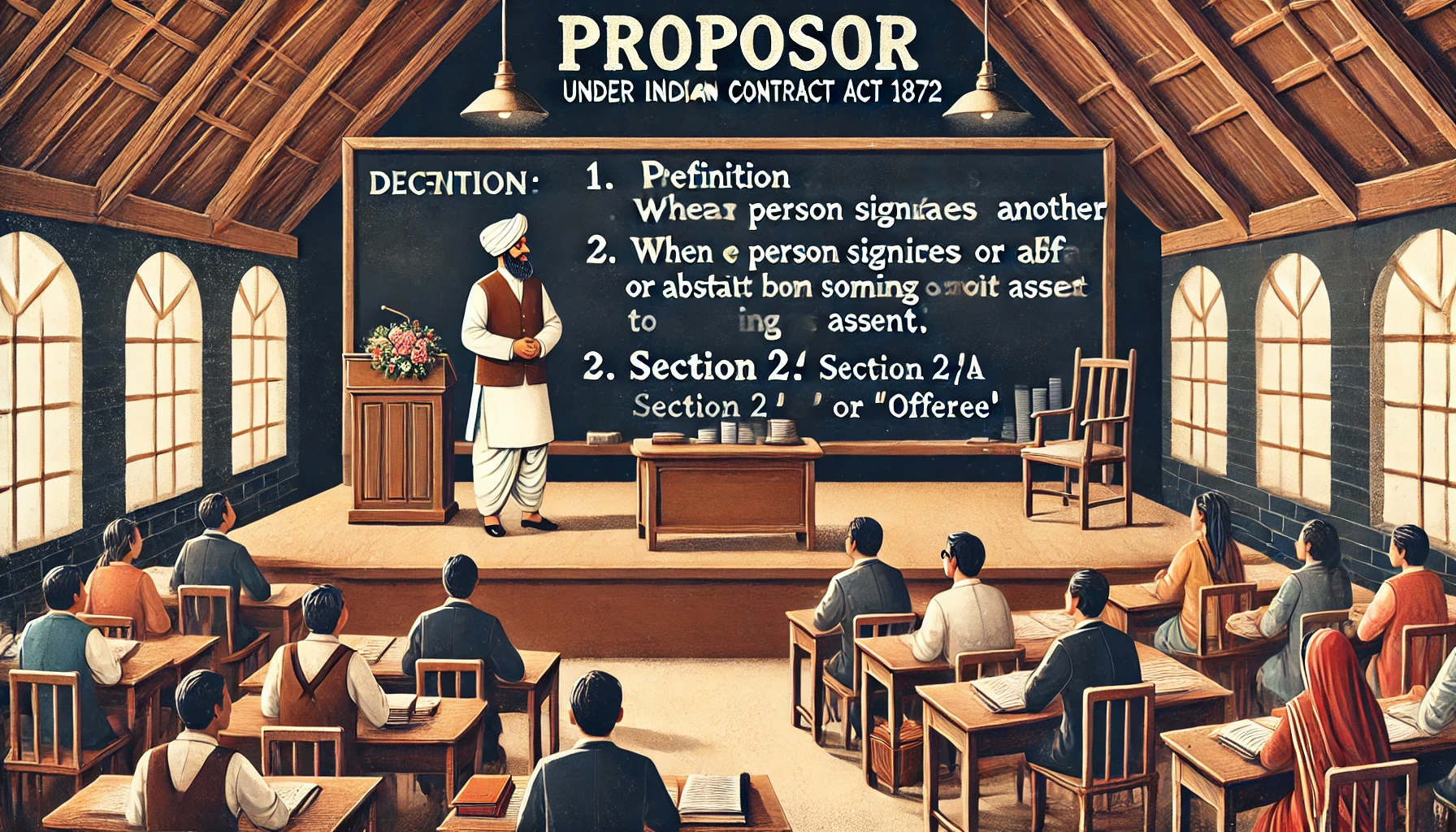






























































































Comment
Nothing for now